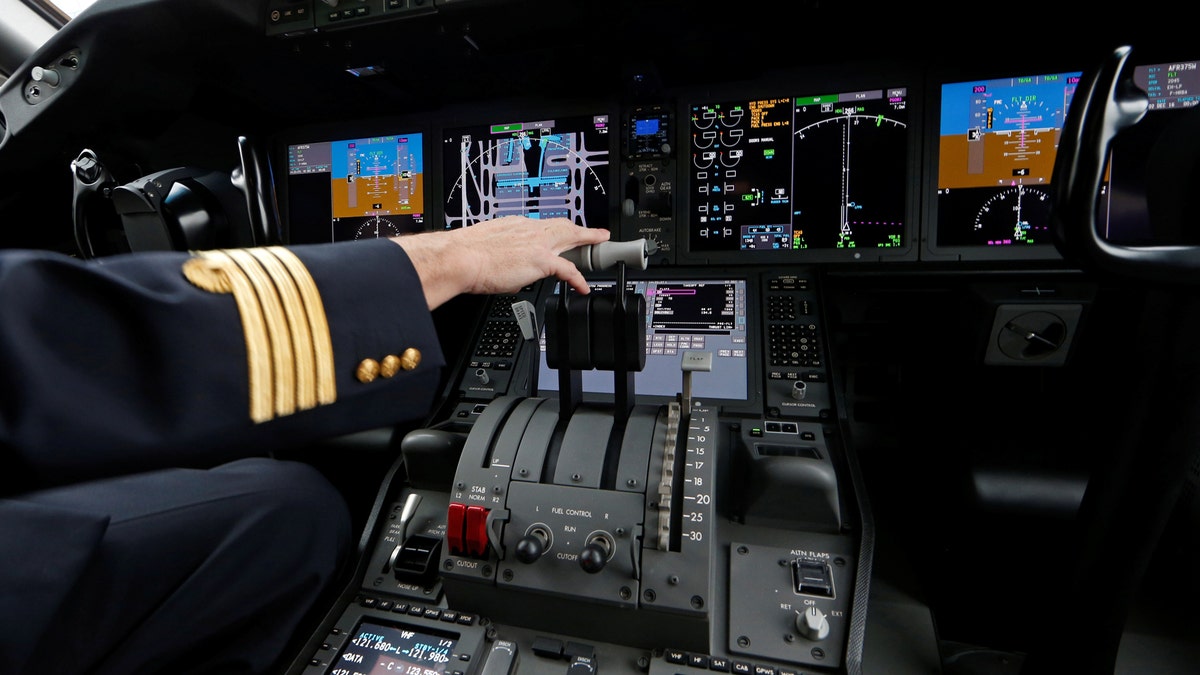
File photo: An Air France pilot stands in the cockpit of the airline's new Boeing Inc. 787-9 Dreamliner passenger aircraft as it stands on the tarmac at Charles de Gaulle Airport in Roissy, France, December 2, 2016. (REUTERS/Benoit Tessier)
Although aviation experts often tell us how "planes pretty much fly themselves these days," the idea of getting on one without a pilot will apparently prompt most travelers to check the train timetable instead.
Sure, most of us would happily take a ride in a driverless car, any fears calmed by the fact that it's traveling along the ground at 50 mph rather than at 36,000 feet at 500 mph.
New research published this week confirms that most people are still not cool with the idea of stepping on a pilotless plane that can take off, fly, and land without any human help whatsoever.
The report, published by investment bank UBS, found that 54 percent of 8,000 respondents said they would most likely refuse to board a pilotless plane, even if the fare was cheaper. Only 17 percent said they'd be happy to fly on a plane without a pilot.
More From Digital Trends
Breaking down the results by country, the researchers found that Americans were most comfortable about the idea of pilotless planes, with 27 percent willing to take a flight on one if the possibility presented itself. French and German travelers were the least likely, with only 13 percent expressing a willingness to give it a go.
Perhaps not surprisingly, younger respondents specifically those aged between 18 and 34 have the least issues about hopping aboard a plane without a cockpit. "This bodes well for the technology as the population ages," UBS noted in its findings.
The report points out several advantages to having planes flown entirely by computers instead of humans, such as the removal of pilot error that can lead to catastrophic crashes. According to Boeing, around 80 percent of airline accidents are caused by pilot error, while the other 20 percent are attributable mainly to equipment failures.
But travelers nervous about the reliability of the technology would want to be satisfied about the security of the plane's computers, with some fearing what hackers might do if they gained access to on-board systems or computers on the ground communicating with the aircraft during a flight.
Huge savings … for airlines
Airlines are getting interested in pilotless planes because of one main reason: costs. UBS estimates that the industry spends more than $30 billion on pilots every year, so replacing them with computers offers obvious benefits. The report also suggests that significant fuel savings would be made because autonomous planes would fly more efficiently.
Although it's hard to say when paying passengers will be flying on pilotless planes, USB points out that "the technology to remotely control military drones already exists, and this technology could be adapted to control … small to medium-sized business jets and, eventually, commercial aviation." Indeed, plane makers are continuing to improve existing systems that already allow commercial airliners to fly without pilot assistance for much of the flight.
As flight autonomy increases, commercial airlines may first reduce pilots in the cockpit from two to one, while cargo planes would likely be the first large aircraft to do away with pilots altogether. But when it comes to taking them off passenger jets and redesigning the plane to remove the cockpit (and add more seats), well, we're looking forward to seeing the industry's marketing strategy for that one.
